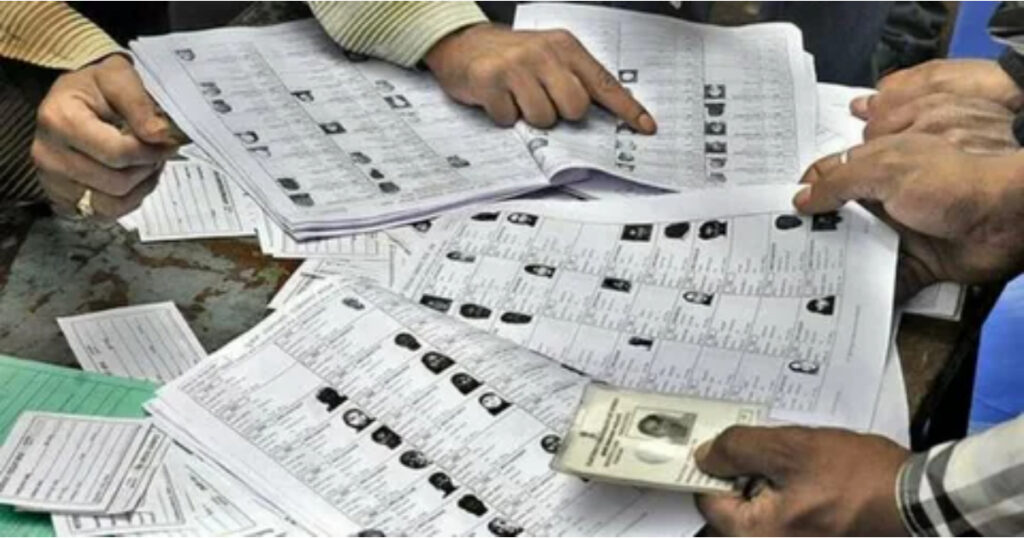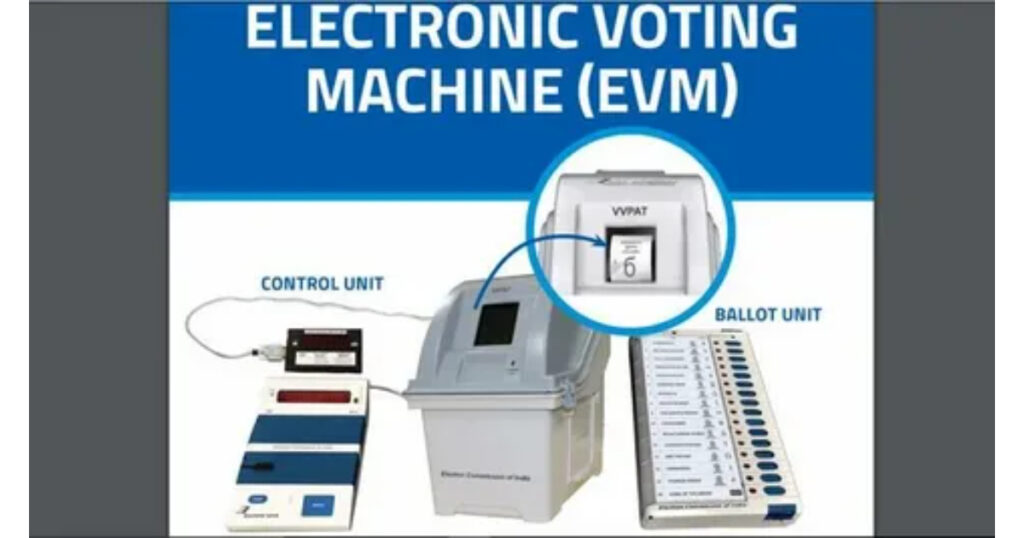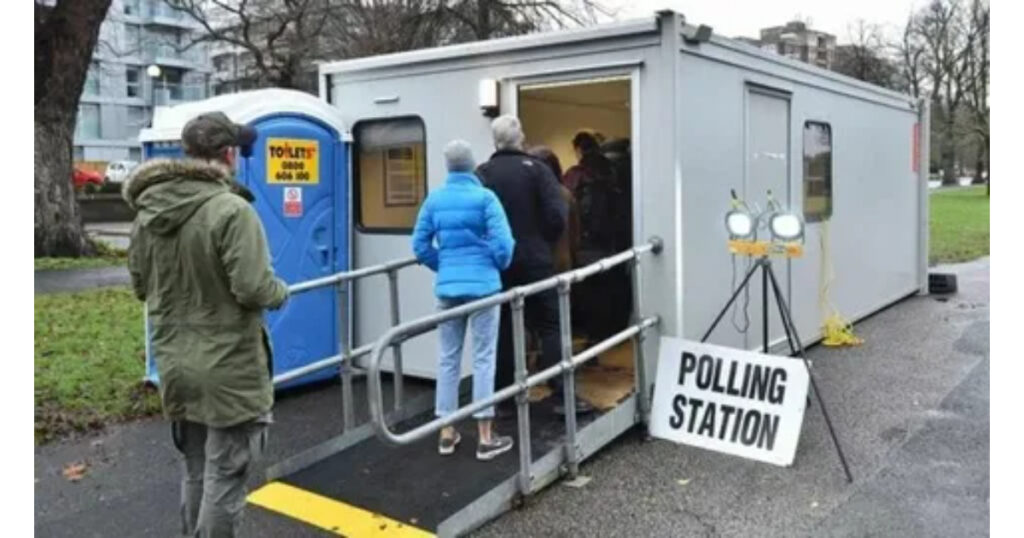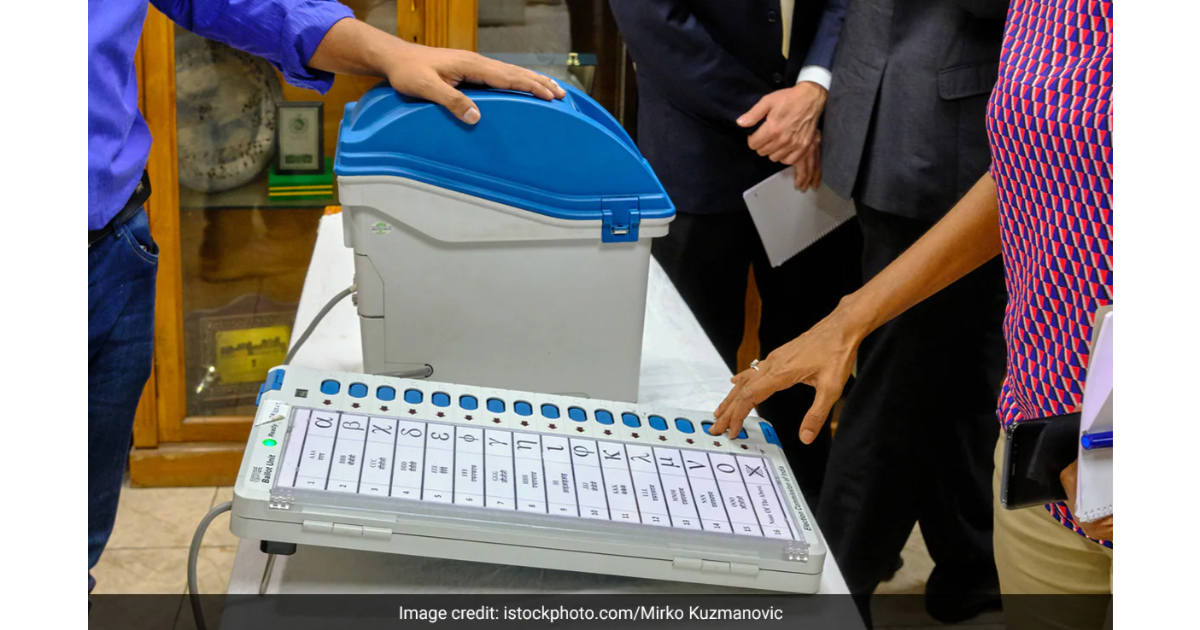Lok Sabha elections are a pivotal part of India’s democracy, determining the composition of the government that will lead the world’s largest democracy. As a voter, it’s essential to understand the importance of your vote and how the process unfolds. Every eligible citizen above 18 has the right to vote, provided they are registered on the electoral rolls of their constituency. Registration can be done online or at local electoral offices, making the first step to participating in Lok Sabha elections accessible and straightforward. About Voting in Lok Sabha Elections
The Election Commission of India conducts the voting process for the Lok Sabha elections, ensuring transparency and fairness. On the day of voting, registered voters must go to their designated polling stations, where they will verify their identity using approved documents. After verification, voters are directed to a private booth to vote on an Electronic Voting Machine (EVM). These machines are secure and are designed to prevent any tampering or fraud. After casting a vote, the voter’s index finger is marked with indelible ink to indicate they have voted and prevent double voting.
Understanding the electoral process enhances citizens’ ability to participate effectively and make informed decisions. Voters must know the candidates and parties contesting from their constituency and their respective platforms and agendas. Awareness drives, voter education programs, and access to nonpartisan electoral information are vital tools that empower voters and ensure they can contribute responsibly to the democratic process. By participating in Lok Sabha elections, citizens have a direct hand in shaping the nation’s future, making every vote a cornerstone of democracy.
Eligibility Criteria for Voters in Lok Sabha Elections
In India, the right to vote is granted to all citizens who meet specific eligibility criteria set forth by the Election Commission. To vote in the Lok Sabha elections, an individual must be at least 18 years old as of the qualifying date—typically January 1st of the year of the election. Additionally, the voter must be registered in the constituency’s electoral roll where they reside. This eligibility ensures that every adult citizen has a voice in choosing their government, reflecting the democratic ethos of the nation.
Eligibility to vote also involves not being disqualified due to legal or electoral rules. For instance, non-residents, prisoners, and those declared mentally unsound by a competent court are not eligible to vote. These criteria are designed to maintain the integrity and fairness of the electoral process, ensuring that only eligible voters participate in shaping the country’s political future.
How to Register as a Voter for Lok Sabha Elections

Registering to vote in the Lok Sabha elections is straightforward and can be completed online or in person. Eligible citizens can fill out Form 6 on the Election Commission’s website or at local electoral offices. This form can be submitted along with age and residence proof documents. Online submissions are encouraged as they are more convenient and reduce the paperwork involved in voter registration.
Once the application is submitted, electoral officers review it to ensure all information is accurate and that the applicant meets all voting eligibility criteria. Following approval, the applicant’s name is added to the electoral roll. A Voter ID card is issued to recognize the recognizer’s registration formally. This card serves as identification at polling stations on election day and is crucial for participation in the democratic process.
Understanding the Electoral Roll and Its Importance
The electoral roll is a comprehensive list of individuals registered to vote in a constituency. It is crucial for maintaining the organization of the electoral process and ensuring that each eligible citizen has a single vote. The role is updated regularly to add new voters who have reached the age of 18 or to remove those who have passed away or moved out of the constituency.
Accuracy in the electoral roll is imperative as it prevents electoral fraud and ensures fairness in the voting process. Citizens are encouraged to check their names in the electoral roll before the election date and make any necessary corrections to avoid any last-minute issues at the polling station. This proactive approach helps in facilitating a smooth electoral process on voting day.
Step-by-Step Guide to the Voting Process
On election day, voters must go to their assigned polling station, as stated in their Voter ID card. The first step at the polling station is identity verification, where election officials check the voter’s ID against the electoral roll. Once verified, the voter receives a ballot paper listing the candidates from their constituency. In the voting booth’s privacy, voters select their preferred candidate by pressing a button on the Electronic Voting Machine (EVM).
After casting the vote, the voter’s finger is marked with indelible ink to prevent double voting. This marking is a safeguard that maintains the one person-one vote rule crucial to democratic fairness. Voters then leave the polling booth, having successfully contributed to the democratic process. The procedure is designed to be secure, private, and accessible to all voters, ensuring that every vote is counted accurately.
Introduction to Electronic Voting Machines (EVMs)

Electronic Voting Machines (EVMs) are used in Indian elections to streamline the voting process and reduce the chances of fraud. These machines are designed to be user-friendly, allowing voters to simply press a button next to the candidate and symbol of their choice. Each machine is rigorously tested before deployment to ensure its functionality and security.
EVMs are equipped with the control unit and the ballooning unit, which are connected by a five-meter cable. The electoral officer operates the Control Unit, and the voter accesses the Ballooning Unit system to ensure that votes are securely cast and accurately tallied, providing a reliable and efficient means of conducting large-scale elections.
Role and Functions of the Election Commission of India
The Election Commission of India (ECI) is the authority responsible for overseeing elections throughout the country. Its functions include preparing and updating the electoral rolls, supervising candidate nominations, enforcing the Model Code of Conduct, and regulating political parties’ campaign spending. The ECI ensures that elections are conducted freely, fairly, and impartially.
Furthermore, the ECI also handles elections’ logistics and security arrangements, ensuring that every polling station is equipped with necessary facilities and that law and order are maintained. The ECI’s independence is crucial for maintaining the democratic integrity of the electoral process, making it one of the most vital institutions in Indian democracy.
How to Identify Your Polling Station
Each voter is assigned a specific polling station based on their residential address listed in the electoral roll. The location of polling stations is strategically chosen to accommodate all registered voters in nearby areas. Voters can find out where their designated polling station is by checking their Voter ID cards, which include this information. Additionally, the Election Commission provides details on polling stations on their website and through various public notifications.
Voters need to visit the correct polling station to cast their vote. This ensures the process goes smoothly and that each vote is registered correctly. Knowing your polling station beforehand can save time and avoid confusion on election day, contributing to an efficient voting experience.
Critical Deadlines and Dates for Lok Sabha Elections
The Election Commission of India announces the schedule for the Lok Sabha elections, which includes critical deadlines and dates such as the last day to register as a voter, the nomination days for candidates, and the actual voting dates. These dates are widely publicized in various media outlets, including the official ECI website, to ensure everyone has the information they need to participate in the elections.
Voters should pay special attention to these deadlines, particularly the voter registration cut-off. Missing these deadlines could prevent participation in the elections. Voters should mark these important dates in their calendars and prepare to fulfill their civic duties without any last-minute hurdles.
Safety Measures and Accessibility at Polling Stations

Read Also:Exploring the Vastness: What Does the Factorial of 100 Really Mean?
Safety and accessibility are top priorities at polling stations to ensure that every eligible voter can cast their vote without any hindrance. Polling stations are equipped with ramps and other facilities to accommodate voters with disabilities. Safety protocols, including security personnel presence, are in place to maintain order and prevent untoward incidents.
During elections, measures are also taken to adhere to specific health advisories, such as during the COVID-19 pandemic, when social distancing and sanitizatsanitizations were implemented. These precautions help create a safe environment for voters and staff, facilitating a smooth electoral process.
Understanding Constituencies and Their Representation
India is divided into various constituencies for elections, with each constituency electing one representative to the Lok Sabha. These divisions are based on multiple factors, including population, geographic conditions, and administrative convenience. Understanding your constituency and its boundaries can help you better understand the electoral landscape and the candidates standing for election.
Each constituency has a unique demographic and socio-economic profile, which influences its voters’ priorities and concerns. By understanding these nuances, voters can make more informed decisions about which candidate best represents their interests and needs in the Lok Sabha. Awareness of one’s constituency promotes a more engaged and informed electorate, which is essential for a robust democracy.
FAQs
What is the minimum age to vote in Lok Sabha elections?
- The minimum age required to vote in Lok Sabha elections is 18 years. You must be 18 or older on the qualifying date set by the Election Commission, typically January 1st of the election year.
How can I register to vote in Lok Sabha elections?
- You can register to vote by filling out Form 6 online on the Election Commission’s website or at local electoral offices
What documents are required for voter registration?
- Commonly required documents include a birth certificate, passport, Aadhar card, or any other government-issued ID for proof of age and residence. Check the Election Commission’s website for a detailed list of acceptable documents.
How do I find out where my polling station is?
- Your polling station details will be listed on your Voter ID card and found online through the Election Commission’s portal. Local newspapers and official notifications also provide this information closer to the election date.
Can I vote without a Voter ID card?
- Yes, you can vote without a Voter ID card if your name is on the electoral roll. However, you must present an alternative government-issued photo ID such as a passport, driving license, or Aadhar card.
What should I do if my name is not on the electoral roll at my polling station?
- If your name is not on the electoral roll, you should contact the nearest electoral office to find out why and get it rectified. Ensure you have all proper documentation and that you are checking the correct polling station for your registered address.
How are votes counted in Lok Sabha elections?
- Votes in Lok Sabha elections are counted electronically through Electronic Voting Machines (EVMs), designed to ensure accuracy and prevent tampering. Counting typically begins the day following the election, and results are usually available within a few hours.
What happens if I am living abroad? Can I still vote in Lok Sabha elections?
- Indian citizens living abroad are eligible to vote in Lok Sabha elections. However, they must register as overseas voters and physically present at their designated polling station in India on election day.
Is there a provision for postal voting in Lok Sabha elections?
- Applications for postal voting must be submitted in advance as per the guidelines issued by the Election Commission.
What are the legal implications if someone tries to vote more than once?
- Under Indian law, voting more than once is a punishable offense. It can lead to imprisonment, a fine, or both. The electoral rolls and the indelible ink applied to voters’ fingers help prevent multiple voting.
Conclusion
Every eligible Indian citizen has the right and duty to vote in the Lok Sabha elections. It’s an opportunity to shape the country’s leadership and policies for the next five years. Thus, understanding the voting process is critical to exercising one’s rights and doing so responsibly to influence the country’s future.
